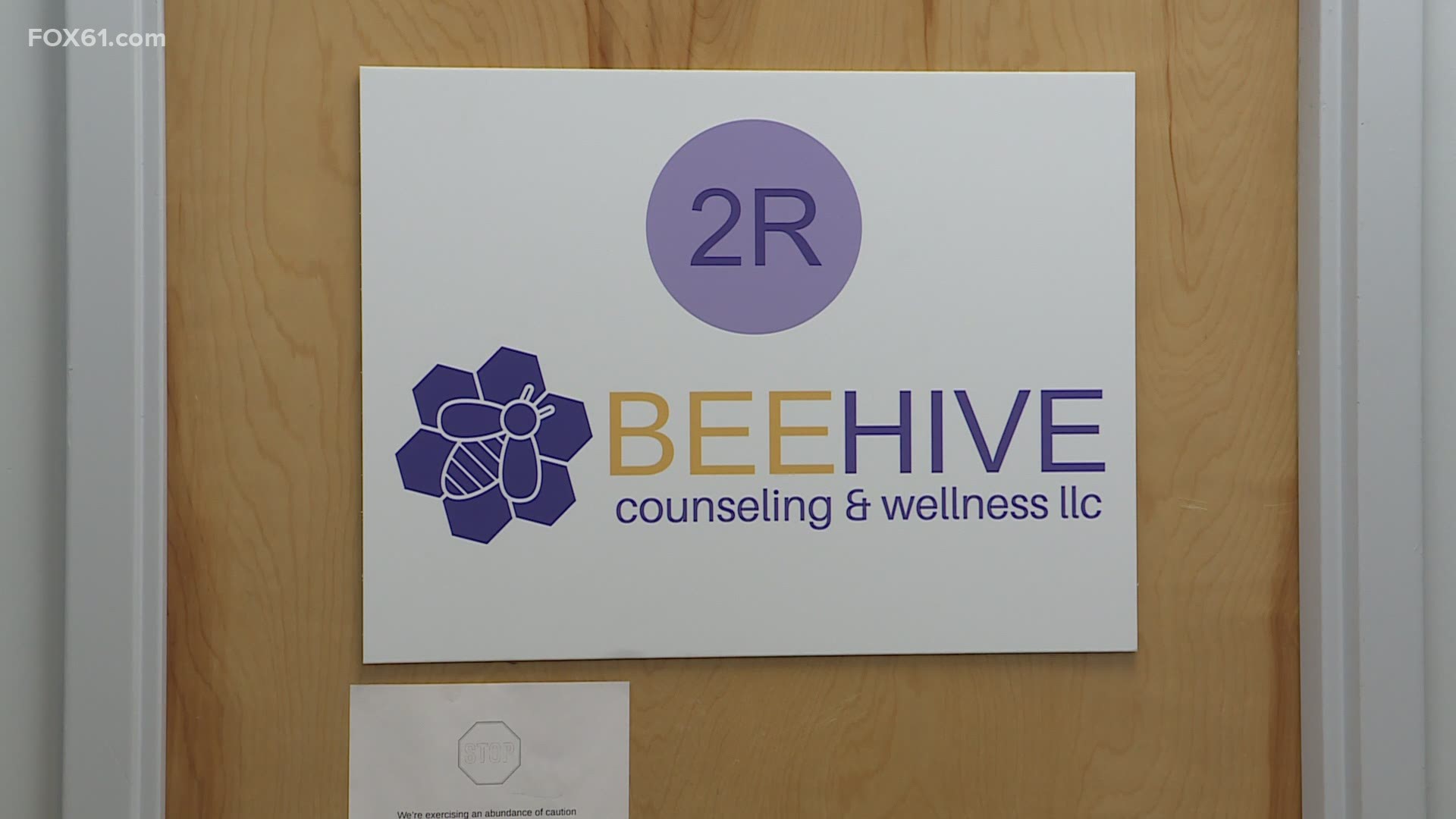CONNECTICUT, USA — The Coronavirus pandemic has taken a toll on millions of Americans' mental health.
The uncertainty and change in routine have led many down a dark hole.
"I think a lot of people are suffering from anxiety. They’re just sad and lonely and they want help and just cry," said
Officer Teresa Velez of the HPD Employee Assistance Program.
Officer Velez has dealt firsthand with those cries for help. It is what she and her fellow officers have been trained for as part of the Hartford Police Department's Employee Assistance Program.
Just recently, a mother thanked those officers on Facebook for saving her son.
In March, right before the peak of COVID-19, Governor Lamont ordered all restaurants and bars to close. Three weeks after the closure, those who heavily relied on social gatherings had nowhere to turn.
The term 'social distance' has been thrown around many times during the pandemic. While it has been effective in lowering the spread, it can also make people feel isolated and lonely, leading some to not sleep as well and turning to an increased use of tobacco and alcohol.
"That’s their whole social life is that watering hole that they go to. Now that watering hole’s closed due to COVID. And these people were fine for maybe week one or two and on the third week, it’s like my social life just went out the window with COVID," added Officer Velez.
Others found relief by overdosing. Opioids and heroin came their temporary suppressant.
"There’s a man passed out or somebody’s got a needle in their arm, or they’re in a bathroom at a restaurant," added Officer Velez.
Emotions and actions like such are usually caused by a trigger. In this instance, Rebecca Robotham with Beehive Counseling and Wellness said her clients fear the unknown.
"Their jobs, just their financial, their family systems have changed, children being homeschooled," said Rebecca Robotham of Beehive Counseling & Wellness.
According to the Connecticut Suicide Advisory Board, suicide attempts and deaths were reduced during the spring and summer months, but the numbers have rebounded.
"Sometimes people do come out and say I’m suicidal. Other times, it maybe I’m not feeling myself right now, I’m feeling like what’s the use of living," added Robotham.
The words "not feeling myself" were thought of by a local wedding photographer.
Jessica Tones' business was put on pause for the first three or four months of the pandemic. Her clients repeatedly postponed their special day. That led to her income coming to a halt. Her mental illnesses though - anxiety, depression, and attention deficit hyperactivity disorder - kicked into high-gear.
"I almost gave up honestly. I fell into this weird depression for some time. It was mood swings. Big rollercoaster," added Tones.
Tones broke the stigma through therapy and medication which became her savior.
"The shortness of breath, usually feel like my hands get really tight and that makes it hard to edit and do anything, so they get into a claw mode, sometimes my eye twitch," added Tones.
Two days before Halloween, Governor Lamont announced three-point-five million dollars in grant money would be awarded to the state's mental health agencies.
"The economic health, physical health, COVID, and what that means in terms of your mental well-being and your mental well-being directly impacts how you’re feeling in your physical health," said Governor Lamont.
For many, getting the support or admitting they need it is difficult, but it is important to know help is available.
RESOURCES:
- If you are looking for a counselor or therapist, click here for the website of Beehive Counseling & Wellness in Manchester.
- National Suicide Prevention Hotline - In Crisis call 1(800)273-TALK (8255) or 211 in CT or Crisis Text Line: Text CT to 741741; In an Emergency Call or Text 911
- National Disaster Distress Helpline: Call 1-800-985-5990 or text TalkWithUs to 66746
- Hero Hotline 1(888)217-HERO (4370) for Frontline Workers and those who care for them

